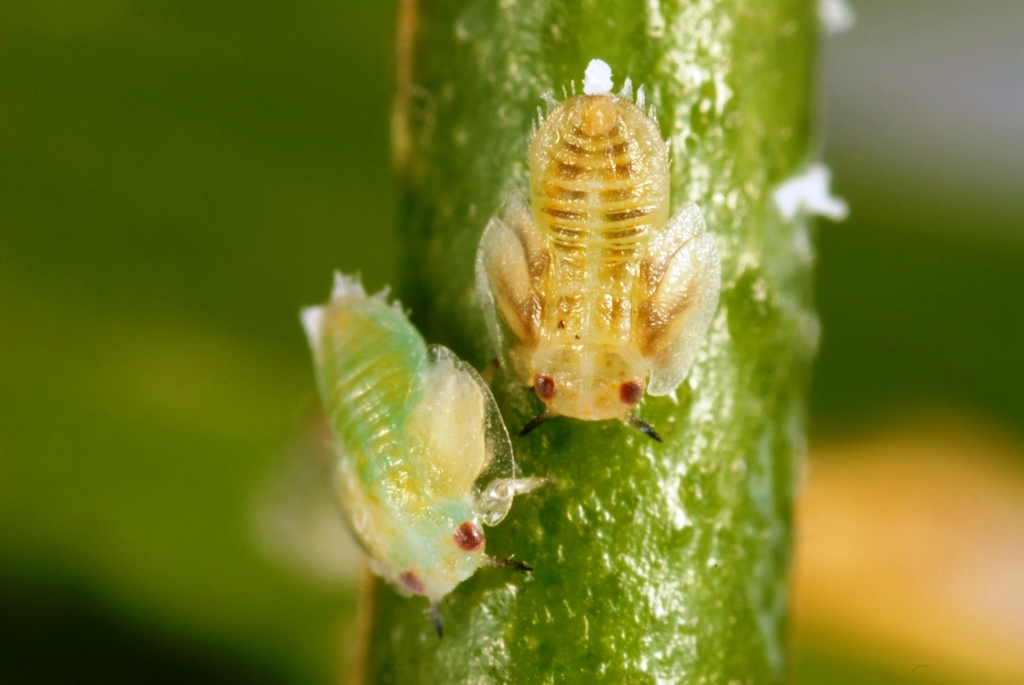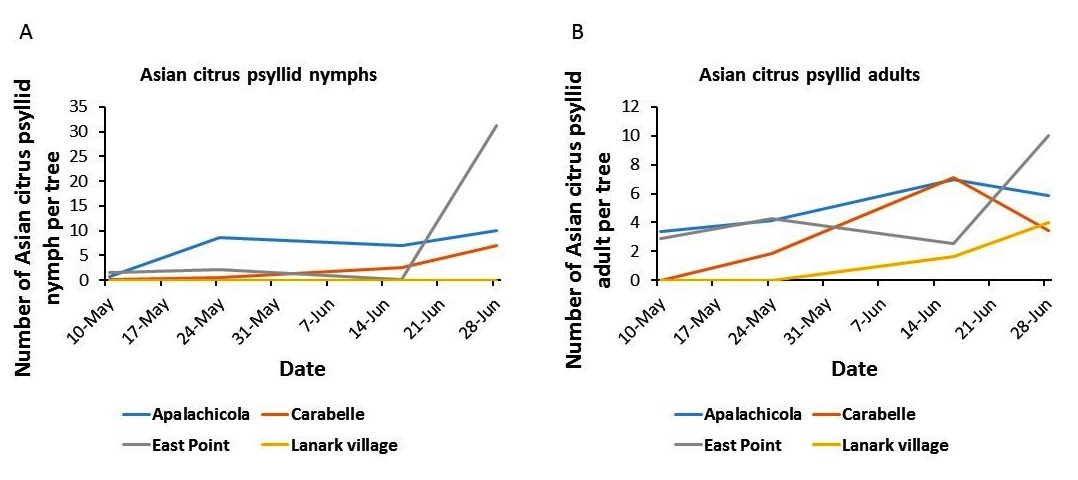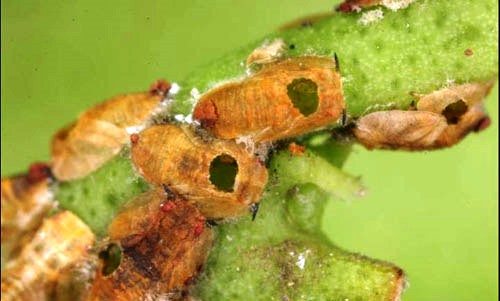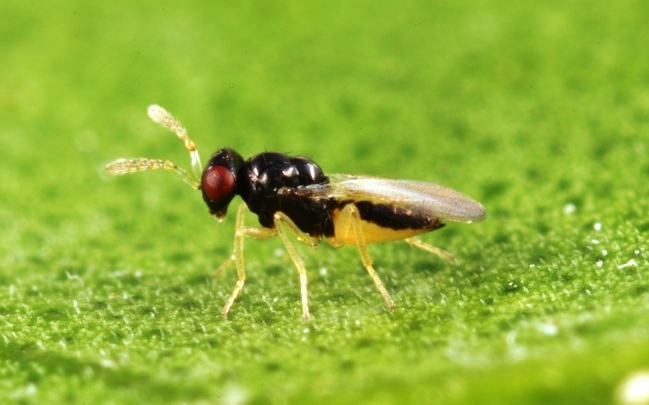
Fig. 1 Asian citrus psyllid nymphs. Photo by Lyle Buss UF/IFAS Department of Entomology and Nematology
The Asian citrus psyllid (Fig 1), the carrier of the causative agent of citrus greening or Huanglongbing (HLB), is certainly the most devastating pest in citrus worldwide. Since it was first spotted in Florida in 1998, the Asian citrus psyllid has spread across the state, and starting in 2005, the first cases of HLB were detected in Florida. Since then, HLB and the Asian citrus psyllid quickly became established throughout the state in all citrus production areas. The disease has a disastrous impact on citrus production by decreasing yields, lowering fruit quality, and killing trees a few years after pathogen infection.

Fig. 2. Population of Asian citrus psyllid during spring 2017 in Franklin County. (A) Number of nymphs per flush of new leaves, (B) number of adult psyllids found on citrus trees after 8 min of observation.
Until recently, the Asian citrus psyllid was only found occasionally in the Florida panhandle. This summer, however, Asian citrus psyllids were found in four panhandle counties – Gulf, Bay, Franklin, and Suwannee Counties. So far in the panhandle, Asian citrus psyllid have only been found in backyard gardens, but the population along the coast has been high enough to warrant a responsive action (Fig. 2).
In partnership with local growers and Dr. Kerr from the Florida Department of Agriculture and Consumer Service (FDACS), a biological agent was released in Franklin and Suwannee Counties to fight the recent infestation of the Asian citrus psyllid. This tiny wasp called Tamarixia radiata (Fig. 3) only attacks the Asian citrus psyllid, and will find its host by following attractive odors emitted by the citrus plant and by chemical cues emitted directly by psyllid nymphs. The female wasp will lay eggs on the ventral (under) side of 3rd to 5th instar psyllid nymphs. The parasitoid larvae then grow and develop by sucking the hemolymph (fluid equivalent to blood in most invertebrates), from their host, and eventually emerge as an adult through a small hole on the thorax of the dead psyllid (Fig 4). In addition, the female wasps also feed directly on psyllid nymphs; therefore this wasp controls psyllids by both parasitism and predation.

Fig. 4: Asian citrus nymphs with a hole on their thorax where a wasp emerged. Photo by Dr. Michael Roger UF/IFAS Citrus Research and Education
Interestingly, the FDACS has developed a biological control program to release the wasp across Florida, and homeowners interested can contact FDACS to request free delivery of the wasp. This could be particularly useful in cases where Asian citrus psyllid infestations occur and insecticide spray is not possible or not desired. It is important that the parasitic wasp is released outside of any insecticidal spray to minimize mortality, and in the presence of psyllid nymphs as this is the only stage attacked by the wasp.
Another important aspect to consider is the presence of ants. Ants feed on honeydew secreted by psyllid nymphs and will protect them from predator and parasitoids. Presence of ants can decrease efficiency of Tamarixia radiata biocontrol by 85%! Therefore, to obtain optimal control of Asian citrus psyllid by the wasp it is recommended to keep ants under control. This can be accomplished, for example, by smearing a 2-cm wide barrier of sticky Tangelfoot or other non-insecticidal barrier at the base of the trunk to exclude ants from the citrus tree.
The parasitic wasp, Tamarixia radiate, is an important tool to control the Asian citrus psyllid. It is important to keep in mind, however, that while this biological control can lower the numbers of Asian citrus psyllid, it cannot completely eradicate this pest. Even though this biological control will not eradicate psyllids, it can lower the risk of having psyllids invading citrus groves in the panhandle. Management recommendations for citrus growers in the panhandle include routine and thorough scouting for psyllids by examining the trees, especially newly flushed leaves, and using yellow sticky traps in their groves.
Further information on this topic can be found at the following sites:
FDACS – Asian Citrus Psyllid Biological Control
FDACS – Tamarixia Release Application
UF/IFAS Featured Creatures – Asian citrus psyllid
UF/IFAS Featured Creatures – Asian citrus psyllid parasitoid –Tamarixia radiata
- Sap Beetles are Not a Cause of Concern for Citrus but Katydids Are - October 4, 2024
- The Importance of Pollination for Seedless Watermelons and How to Enhance it - April 5, 2024
- New Perspectives for the Management of Invasive Air Potato Vine - November 17, 2023

